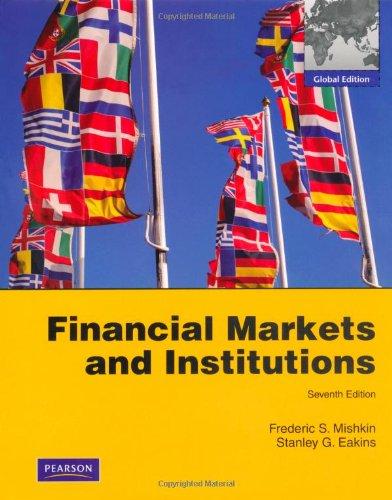Question
Questions (a) We let [1,2] be the effective interest rate of the investment fund, where 1 < 2. Using the definition of effective interest rate
-
Questions
-
(a) We let [1,2] be the effective interest rate of the investment fund, where 1 < 2. Using the definition of effective interest rate and the accumulation function of the investment fund, show that for any 0 1 < 0 < 2,
[1,2] = (1 + [1,0])(1 + [0,2]) 1.
-
(b) Another investor (investor B) has invested some amount into this investment fund at time 0. In addition, he invests an addition amount of $500 at time 1.5. It is given that
-
The amount value of the investment account at time 1 is $2090;
-
The amount value of the investment account at time 1.5 (after the deposit is
made) is $2631.8.
-
The amount value of the investment account at time 3 is $2763.39.
-
The annual effective interest rate over 2nd year (i.e. [1,2]) and 3rd year (i.e. [2,3])
are both Using the information given, calculate the value of .
-
-
(Hint: You can first consider [1,3]. One needs to be careful that the effective interest rate over [1, 2] measures the amount of interest rate earned over the period [1, 2] if $1 is invested at time 1 and no additional deposit/withdrawal are made within (1, 2]. To find [1,3] for this case, you need to reduce the problem into the cases when there is only a single deposit made at the beginning of the period. Think about the result derived in (a) with suitable choice of 0.)
Step by Step Solution
There are 3 Steps involved in it
Step: 1

Get Instant Access to Expert-Tailored Solutions
See step-by-step solutions with expert insights and AI powered tools for academic success
Step: 2

Step: 3

Ace Your Homework with AI
Get the answers you need in no time with our AI-driven, step-by-step assistance
Get Started


